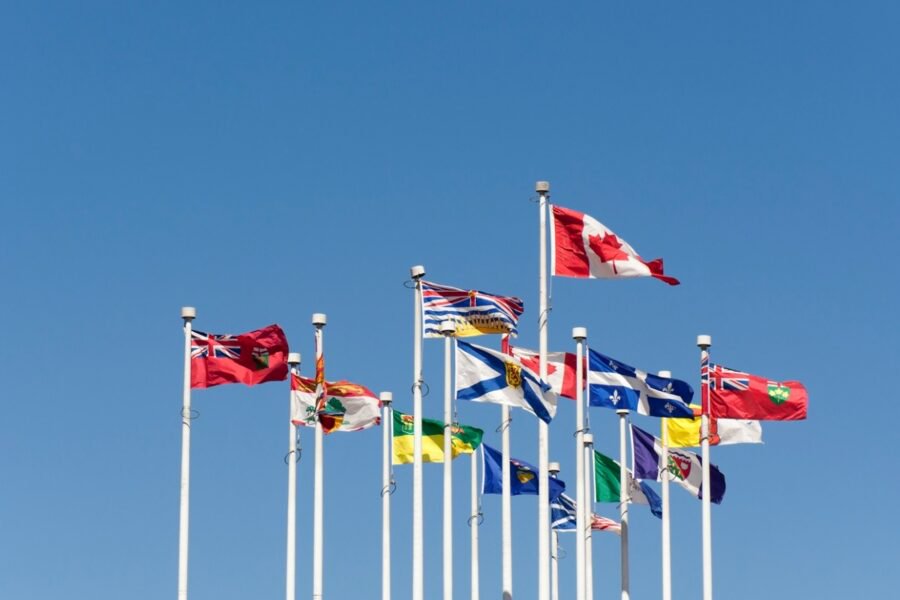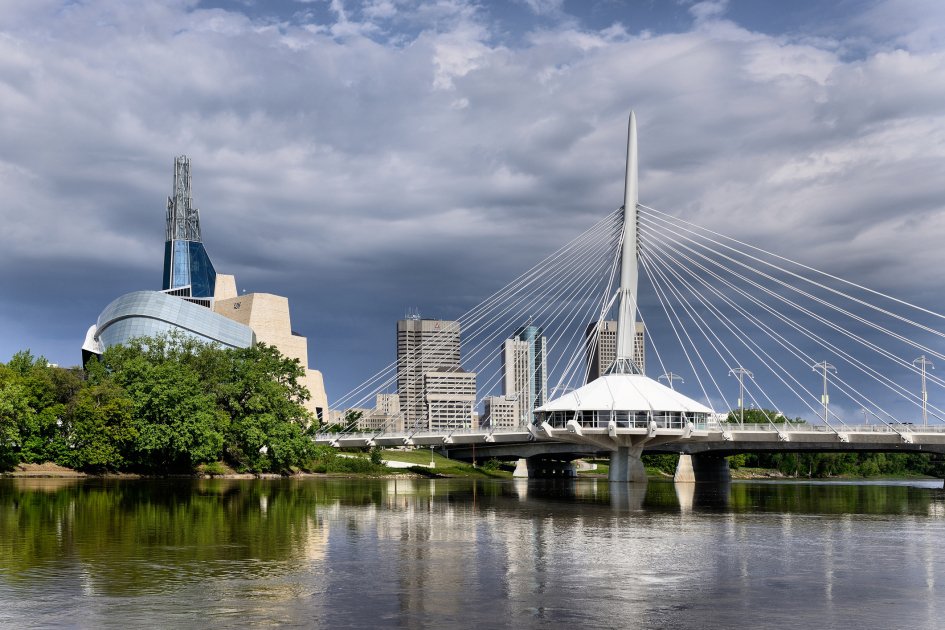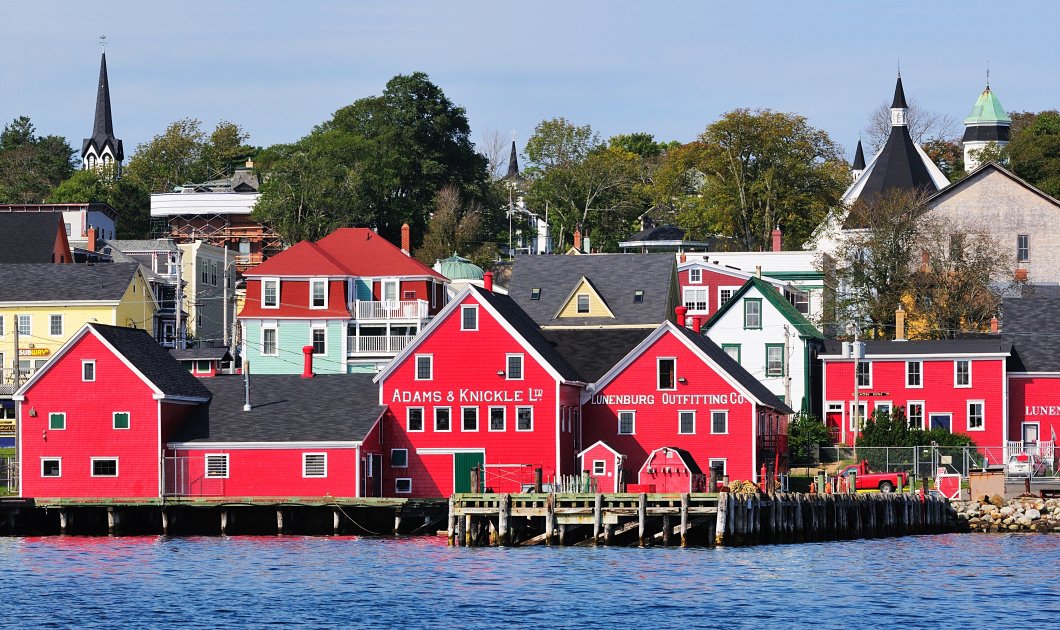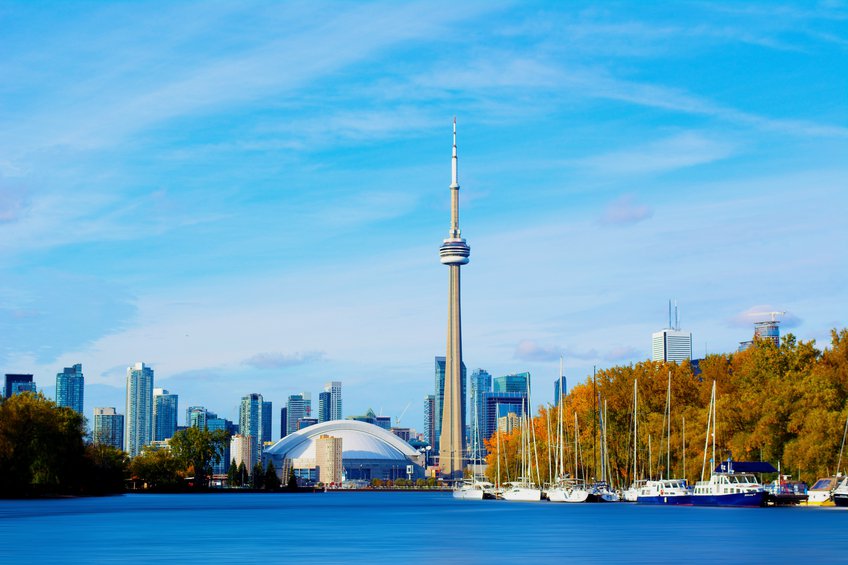PNP: Immigrate to Canada via the Provincial Nominee Program

This comprehensive CanadaVisa page provides you with everything you need to know on the Provincial Nominee Program.
Launched in 1998, the Provincial Nominee Program (PNP) is the leading way to immigrate to Canada as a skilled worker. Nearly every province and territory operates the PNP to welcome skilled workers from all over the world to help strengthen their economies. Scroll down to learn more on the PNP.
Determine if you’re a good candidate for a Provincial Nomination with CanadaVisa+
Table of Contents
- Overview
- Which PNP Streams Am I Eligible For?
- Alberta
- British Columbia
- Manitoba
- New Brunswick
- Newfoundland and Labrador
- Nova Scotia
- Ontario
- Prince Edward Island
- Saskatchewan
- Northwest Territories
- Yukon
- The Latest PNP Results
- Frequently Asked Questions
- Contact the Cohen Immigration Law Firm for Assistance
Overview
Under Canada's Constitution, the federal government and each province and territory share the authority to manage the country's immigration system.
As such, the Provincial Nominee Program (PNP) allows Canadian provinces and territories to nominate individuals who wish to immigrate to Canada and who are interested in settling in a particular province. The only exceptions are the Northern Canada territory of Nunavut and Quebec. Instead, the province of Quebec has the authority to establish its own selection criteria for economic immigration.
The main purpose of the PNP is to spread the benefits of immigration across Canada. Prior to the launch of the PNP in 1998, most of Canada's immigrants settled in Ontario, Quebec, and British Columbia. Since 1998, however, Canada has seen a broader distribution of immigration across the country since the Prairie provinces (Alberta, Saskatchewan, and Manitoba) and Atlantic provinces (New Brunswick, Nova Scotia, Prince Edward Island, and Newfoundland and Labrador) have enjoyed more success attracting immigrants thanks in large part to the PNP.
Each PNP has at least one immigration stream that is aligned with the federal Express Entry immigration selection system. Provincial nominations issued under these Express Entry-aligned streams are known as 'enhanced nominations'. The benefits of enhanced PNP streams are that they award Express Entry candidates an additional 600 Comprehensive Ranking System (CRS) points, which essentially guarantee they will receive a permanent residence invitation under Express Entry. Another major benefit is they can have their permanent residence application processed by the federal government quicker, typically within six months. The other way to obtain permanent residence through the PNP is under a 'base' stream. Here, you apply to a PNP stream directly and once you obtain a provincial nomination, the federal government will process your permanent residence application.
Which PNP Streams Am I Eligible For?
With more than 80 provincial immigration streams, discovering the Canadian immigration pathway that best suits you may be challenging. The Canada PNP Finder is designed to help you discover the right immigration pathway to Canadian permanent residence, and track the latest Canada PNP updates. Simply click on the red button below to benefit from this tool:
The Alberta Advantage Immigration Program, formerly known as the Alberta Immigrant Nominee Program (AINP) consists of eight streams divided into two main categories : one for workers and the other for entrepreneurs. The province issues provincial nominations to foreign nationals who meet program-specific criteria and demonstrate an intention to reside in the prairie province.
The BC PNP consists of the Skills Immigration, Express Entry BC and Entrepreneur Immigration Streams. These streams are divided into categories that target skilled workers, international graduates and other professionals with skills, experience and qualifications needed in B.C.
Manitoba's provincial immigration program is comprised of streams designed to nominate skilled workers and their families who wish to work and live in the province permanently. The MPNP is currently undergoing renewal.
The NBPNP is New Brunswick's provincial immigration program with streams targeting entrepreneurs, international graduates, skilled workers with employer support and skilled workers in the federal government's Express Entry selection system
The NLPNP accepts immigration applications from skilled workers, international graduates and entrepreneurs who meet program-specific criteria such as a job or job offer, intent to reside, and the ability to become economically established in the province.
The NSNP is Nova Scotia's program for the nomination of eligible skilled workers, international graduates, entrepreneurs and professionals looking to settle permanently in the province. The program has various economic immigration streams with not one, but three streams aligned with Canada's Express Entry system.
Through the OINP, Ontario nominates foreign workers, international students, business owners or entrepreneurs who have the skills, experience, education and intent to settle in the province as permanent residents.
The PEI PNP is the island province's economic immigration program for skilled workers, international graduates, entrepreneurs who demonstrate the intention to live and work in PEI, and show the ability to become economically established in the province.
The SINP is Saskatchewan's dedicated immigration program for the selection and nomination of eligible foreign nationals through various pathways, including its leading International Skilled Worker: Express Entry and Occupation In-Demand categories.
The Northwest Territories accepts economic immigration applications to settle in Northern Canada under two main streams - the Employer Driven and Business - one of which has three distinct streams, including an Express Entry-aligned stream for skilled workers.
Yukon's official provincial immigration program assists eligible employers in Canada's northern territory to nominate internationally-trained foreign workers and businesspeople for Canadian permanent residence.
The Latest PNP Results
You can view the results of all PNP draws conducted this year on our dedicated page. Here, you will see when the latest draws have taken place, the selection criteria, and the number of candidates who received provincial nominations.
Frequently Asked Questions
Yes. Research by Immigration, Refugees and Citizenship Canada (IRCC), Statistics Canada, Canada's provinces and territories, and academics show that immigrants who arrive through the Provincial Nominee Program (PNP) have strong labour market outcomes. They are often able to integrate quickly into the Canadian job market. The research shows that PNP immigrants tend to earn high wages, have high rates of labour force participation and employment, and low rates of unemployment.
Reasons for the success of PNP immigrants include:
- PNP immigrants are nominated based on meeting the local labour market needs of Canada's provinces and territories.
- They have high levels of human capital including strong language skills, education, work experience, and Canadian connections.
- PNP selection criteria often screens for Canadian work experience, Canadian education, and pre-arranged employment in Canada.
The process depends on which PNP stream you are applying to, and whether this stream is Express Entry-aligned (enhanced) or not. PNP streams employ online applications as the standard.
The biggest benefit of going through an Express Entry-aligned stream is you can have your permanent residence application processed by Immigration, Refugees and Citizenship Canada within 6 months, compared with longer processing times for base (non-Express-Entry-aligned) streams.
When you reach the permanent residence application phase of the process, most candidates will needs to complete medical and police checks.
Base PNP process:
Step 1: Find out if you are eligible for the PNP.
Step 2: Apply to a given PNP stream.
Step 3: If you are nominated (approved) by the province or territory, submit a paper application for permanent residence to IRCC.
Step 4: Pass a medical exam and get a police check.
Step 5: Once you are approved by IRCC, you can complete your permanent residence landing in Canada.
Enhanced (Express Entry-aligned) process:
Step 1: Find out if you are eligible for the PNP.
Step 2: Apply to a given PNP stream.
Step 3: If you receive a provincial nomination, create an Express Entry profile on IRCC's website and indicate you have been nominated.
Step 4: Once you receive an Express Entry invitation to apply for permanent residence from IRCC, submit your permanent residence application to IRCC.
Step 5: Pass a medical exam and get a police check.
Step 6: Once you are approved by IRCC, you can complete your permanent residence landing in Canada.
Alternatively, you can submit an Express Entry profile to IRCC and then indicate to provinces and territories which jurisdictions you are interested in. A province or territory can then send you a "notification of interest". You can then contact the province or territory to go through the provincial nomination process. Once you obtain the provincial nomination certificate, you will receive 600 additional Express Entry Comprehensive Ranking System (CRS) points which will essentially guarantee that you will get a permanent residence invitation from IRCC. Once you get this invitation, you go ahead and submit your permanent residence application to IRCC, pass a medical exam and get a police check, and then eventually complete your permanent residence landing in Canada.
No. Various PNP streams do not require a job offer or Canadian work or study experience in order for candidates to be eligible to successfully receive a nomination. View the CanadaVisa PNP Finder to learn more about these streams.
The purpose of the PNP is to promote economic growth across Canada.
Canada's Constitution states that immigration is an area of shared federal-provincial jurisdiction, with the federal government having the final say on immigration matters.
For much of Canada's history, the federal government managed the immigration system with little involvement from the provinces and territories.
Beginning in the 1960s, the francophone province of Quebec requested more authority from the federal government to select immigrants so that it could help to strengthen its francophone character. Today, Quebec has the most authority among all of Canada's provinces and territories in terms of selecting and settling immigrants.
In 1998, the federal government and provinces agreed to launch the Provincial Nominee Program (PNP). The purpose was to help smaller provinces attract immigrants who up until that point mainly went to Ontario, Quebec, and British Columbia. These smaller provinces wanted a dedicated program to enable them to create selection criteria and recruit economic class skilled immigrants that met their labour market needs.
The PNP has since expanded and operates in every Canadian province and territory except Quebec and Nunavut. It is widely regarded as a success and is seen as a key driver of economic growth across the country since the arrival of PNP immigrants supports employment, investment, entrepreneurship, and spending.
Yes. You can submit an Express Entry profile and also apply directly to a PNP stream at the same time.
One of the benefits of entering the Express Entry pool is you make yourself visible to provinces and territories who can review your profile and decide to provide you with an invitation to apply to their PNP. If you accept their invitation, you would submit a completed PNP application to the province or territory. Once you application is approved, you will receive a nomination certificate which will provide you with an additional 600 Comprehensive Ranking System (CRS) points under Express Entry, and virtually guarantee you will receive an invitation to apply for permanent residence under Express Entry.
Each candidate's circumstances are different. You should conduct your own research or reach out to an immigration lawyer in order to identify which PNP options may be most suitable for your situation. The CanadaVisa PNP Finder is designed to help, and in addition, you can complete a free CanadaVisa assessment in order to identify which PNP streams you may be eligible for.
Under its Immigration Levels Plan, Canada seeks to welcome over 80,000 immigrants through the PNP each year.
Yes, close family members can move to Canada with you and also obtain permanent residence.
Close family members include:
- your spouse or common-law partner
- dependent children
- dependent children of your spouse or common-law partner
- dependent children of dependent children
Dependent children are:
- under 22 years old and not a spouse or common law partner
- 22 years of age or older, depended significantly on financial support from their parents before the age of 22 and can not support themselves financially due to a physical or mental condition
Canada is a diverse economy with many job opportunities in each province and territory. It is recommended that you conduct research to identify job opportunities that meet your professional background and career goals. Each PNP stream is also designed to provide skilled worker candidates with the best opportunity to succeed in the province or territory. This is because PNP streams are each setup to identify candidates who have the professional backgrounds and skills that are in high demand in the province or territory. The CanadaVisa PNP Finder is available to help you. You are also welcome to complete a free CanadaVisa assessment so we can help you determine which PNP streams you are eligible for.
IRCC's website contains more information on the PNP.
CanadaVisa also offers helpful resources including:
- The CanadaVisa PNP Finder to easily navigate various PNP streams.
- Free CanadaVisa assessment to find out which PNP streams you are eligible for.
- PNP Results to keep up to date on the latest draws.
- CanadaVisa Discussion Forum to learn from fellow community members about how to navigate Canadian immigration.
- CIC News to see the latest PNP news.
- You are also welcome to contact us if you have any questions.
Canada's Constitution allows Canadian citizens and permanent residents to move freely within the country. You are allowed to move to another province if you obtained permanent residence through the PNP, however you are strongly encouraged to be honest about your residency intentions when submitting your PNP application. Misrepresenting your intentions is a serious offense and can lead to consequences for you. It is best to pursue a PNP stream in a province or territory that you believe meets your professional and personal needs.
Some PNP streams will provide a candidate with a work permit. Once the candidate has met certain criteria, the province or territory may issue a nomination certificate to the candidate so they can apply for permanent residence. In such cases, you need to reside in that province or territory while you hold a work permit in order to meet the conditions to get a provincial nomination.
Each PNP stream has its own language standards. You will need to complete one of the following officially designated language tests. Your language test results are valid for two years:
English
French
You are invited to complete a free CanadaVisa assessment so we can help you determine which PNP streams you are eligible for.
Contact the Cohen Immigration Law Firm for Assistance
Cohen Immigration Law is a leading Canadian immigration law firm with over 45 years of experience. Cohen Immigration Law features over 60 immigration lawyers, paralegals, and professionals who are dedicated to helping you immigrate to Canada.
CanadaVisa.com was founded as the online presence of Cohen Immigration Law. Since its launch in 1994, CanadaVisa has grown into one of the globe's most trusted resources on Canadian immigration. If you want to immigrate to Canada through the PNP or another skilled worker pathway, the first step is to complete a free CanadaVisa assessment form. If you are eligible for Canadian immigration, a member of the Cohen Immigration Law team will reach out to provide you with as much assistance as possible.
Determine if you’re a good candidate for a Provincial Nomination with CanadaVisa+












